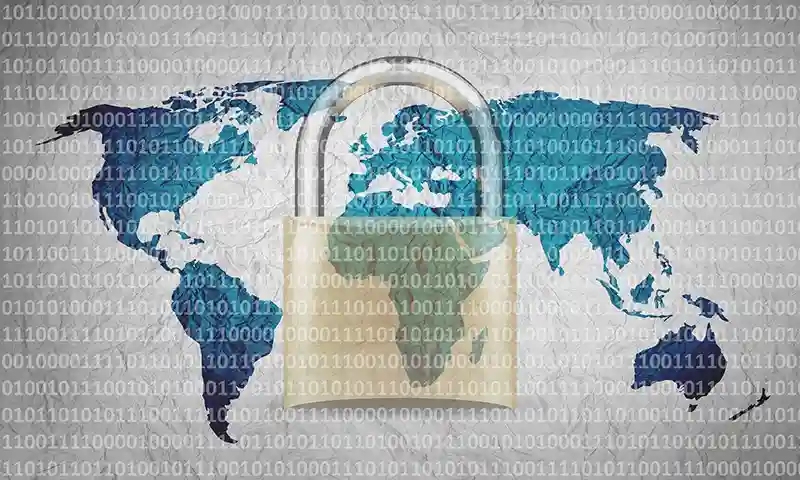How to Handle Cyber Threats Using These Security Guidelines?
Whether you are reading this blog from somewhere in India or overseas, we hope that you are at your home. Not because we have chosen this, but because we have to stop the spread of coronavirus. Started in December 2019 the novel coronavirus also known as COVID-19 is now become a pandemic. And social distancing is one of the keyways of limiting the spread of the COVID-19 because we know that there is no vaccine available till now for COVID-19.
So to maintain the social distancing and stop the spread of coronavirus most of the small and large organizations asking their employees to work from home. But work from home is not as easy as it looks because you may deal with many cybersecurity threats while working from home or remote working. Hence in this blog, we are going to discuss some work from home security tips for employees that will help you to secure your business data and save you from data breaching or any kind of security threat while working from home and also aware you about cybersecurity guidelines for employees.
So let’s start it…
How the Organization will Respond to Avoid Cyber Threats

In this critical time, COVID 19 is also effects on the economy worldwide. Therefore, all the business and organization leaders have a heightened responsibility to set clear expectations about how to manage work from home effectively and its security risk.
Security must come to the very top for any organization, and that is the good start to protect your business crucial data. So, here are four recommendations for business leaders and organizations.
- First, understand the cybersecurity threats working from home. Afterward, understanding the risk factor, all business leaders need to work with their security teams to identify security threats vectors and prioritize the protection of their most sensitive information and business-critical applications.
- The organization must have to provide clear security guidelines for employees and encourage communication. Business leaders must ensure that home-working policies are clear to employees and include easy-to-follow steps that make the home-working environment safe and secure. The security team of an organization must have to instruct employees working from home tips and tricks and internal security teams about any suspicious activities.
- Provide the right work from home security tips for employees. Also, the organization must ensure that all corporately owned or managed devices are equipped with essential security capabilities, so they can easily run their business through a remote environment.
- To maintain business continuity organizations must have to implement resilience plans. Like, employee tracking system or employee monitoring system. Because it will protect their crucial information from an insider as well as outsider threats. The employee’s monitoring system can protect your data in many ways such as Data leak prevention, Corporate Cyber Intelligence, Intellectual Property Theft, and many more.
Also Read: Is Employee Monitoring Software a Good Idea for Business Productivity?
How Employees Avoid Cybersecurity Threats

1. Start with Basic Cybersecurity Tips
If you think that your data is safe on the internet, then you might be thinking wrong. Because data security on the internet is just a myth. But with the use of these works from home cybersecurity tips, you can avoid chances of security threats.
Always keep your security software up to date so that there is no vulnerability or loopholes available in your security software.
Use strong alpha-numeric passwords or encrypted passwords on all your devices and applications and always remember to use a unique password for different systems and login too.
2. Be Careful While Clicking
Coronavirus not only threaten human lives, but it also affects an economy worldwide or your computer. According to research, there is more than 4000 COVID-19 domain register in 2020 and 3% of them are confirmed to be malicious sites.
Also, cyber criminals are exporting the coronavirus outbreak to send a fake email regarding new company policies on coronavirus. The most interesting part is that the email message may appear to come from company officials and might ask you to open a link. If you click on the attachment or link, you are likely to download malware onto your device.
So it is a good idea to practice a bit of distancing when it comes to clicking on suspicious links or attachments. And always check twice while clicking on any links, whether it is a company mail itself and always remember to stick to appropriate cybersecurity guidelines given for employees.
Note: It is imperative to stop phishing because with the help of phishing techniques cybercriminals can easily control your computer, log your keystrokes, and access your sensitive business or financial data.
3. Update Your Software and Security Patches
As we know that software updates and security patches updates are very important in terms to overcome COVID security issues and secure our computers, laptops, tablets, and mobile devices. Because software and patches update will fix all the bugs and all security issues available on your system. And also keep in mind that your update option is configured to update automatically so that when the update available it will download itself.
4. Use Trusted Antivirus Software
If you are working from home, and then it is very important to obey the security guidelines and use trusted and reliable antivirus software to protect your system from malicious software or malware. Because malware can do everything from crashing your system to monitoring or controlling your online activity what you do not want. Therefore, it is mandatory to have a reliable antivirus solution that will secure your data from any specious cyber-attack.
5. Do Not Use Public Wi-Fi
Avoid Public Wi-Fi if you are working from home because it introduces various security risks. Most of the attackers can easily intercept your official data through techniques like eavesdropping or DNS spoofing. So, always remember to use your own secure Wi-Fi network rather than a free public Wi-Fi.
6. Create a Secure Collaboration Team Meeting
While working from home we use tools like instant messaging or video meeting rooms to create a meeting with employees or team members. But remember that always use trusted software to create a team meeting. Because a few days ago you heard a piece of news about ZOOM video conferencing software that is not safe for use and according to bleeping computer over 500,000 users’ accounts are being sold on the dark web. Hence some of the country ban ZOOM software.
So, always create team meetings on secure video conferencing platforms like Google Meet or Microsoft Teams.
7. Secure Home Network
If you are planning to work from home, then make sure you have an encrypted Wi-Fi network. Also, you need to change your router default password because the default password for the router is a weak link in the data protection.
If you do not change your password, then an attacker can easily breach your router security and access your device because every data you send through the router.
8. Use a Virtual Private Network
VPNs or virtual private networks can help you to establish a trusted connection between you and your organizations and ensure ongoing access to corporate tools. Instead of Normal VPNs service use, corporate VPNs service that will add extra protection against phishing and malware attacks.
9. Use Corporate Services for Emails and Other Service
Your company most likely has a set of IT services so, always use corporate service for email services like Microsoft Office 365, G Suite. Also, remember that all these services and software are configured by your company’s IT service are following the security guidelines and IT is responsible for setting them upright.
Also, stick with your corporate resources when exchanging documents and other information. Because corporate mail usually has less spam and adds up to less risk of missing an important email or forwarding something to the wrong address or colleagues.
To protect yourself from scams and phishing, always follow cybersecurity guidelines for employees and don’t share any confidential information via messages or emails directly. Always ensure that the person who asked for information is the right person.
10. Do Not Share Your Confidential Items Through Social Media
Always remember working from home tips and tricks that says, do not share your file or any work-related documents through social media like WhatsApp or Facebook. Because we do not know how secure these sites are? And there is a chance you will accidentally share important information while sharing it through social sites.
11. Lock your Device Before Walking Away
Someone can catch a glimpse of your work correspondence even when you are just having a cup of tea or taking a bathroom break. Therefore, it’s important to lock the screen whenever you get up. A small piece of your hassle will create a hard time for your organization
Even if you are working at home and outsiders have no access to the room, it is still worth locking your device. You probably do not want your child to accidentally send a text to your boss or other employees. So always remember that if you are about to go somewhere, then lock the screen. And it should go without saying that your computer needs password-protection.
12. Do Not Mix Your Personal and Work Device
The most important work from home security tips for the remote worker that they should always use office devices for official work and personal devices for personal work. Because as we said above your work device is pre-configured by your organization security team to stop any kind of security threat. But your device is not that much efficient to protect your data from any kind of cybersecurity threats.
Also Read: Insider Threat Management Software to Prevent Against Insider Threats
Final Words
Now, it’s the time to wrap-up but remember, if you taking all these relatively cybersecurity guidelines for employees straightforward at both an enterprise and individual level, then it will protect you from most common security risks facing during home-working environments.
But remember that Cybersecurity threats coming while working from home are not static, which means it is important to keep a close eye on evolving threats to avoid unnecessary additional costs and disruptions in a time when we can least afford them and obey the working from home tips and tricks carefully.

